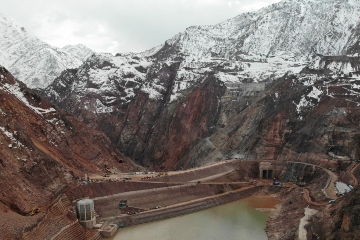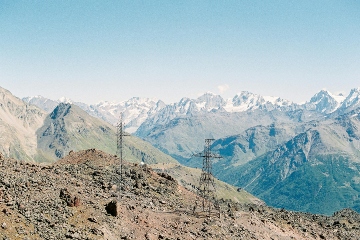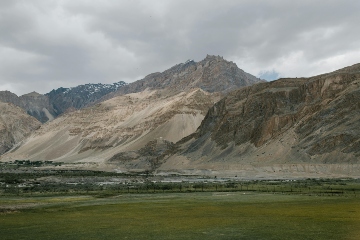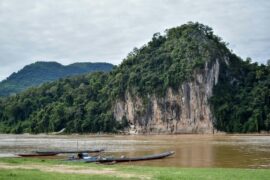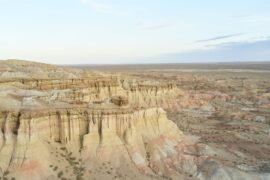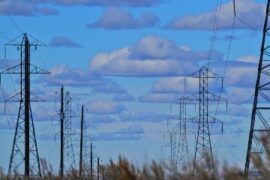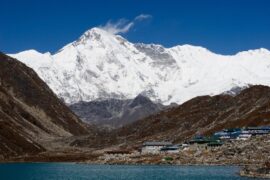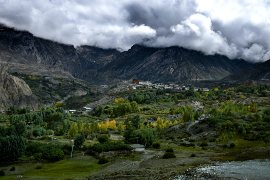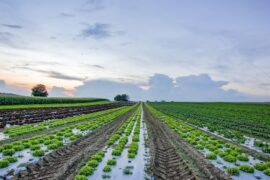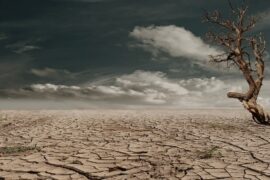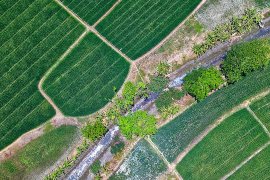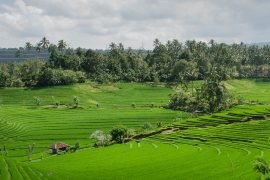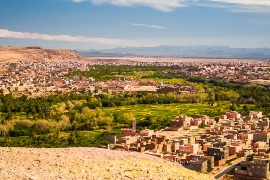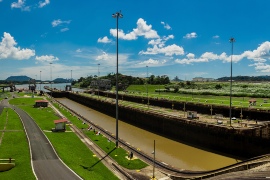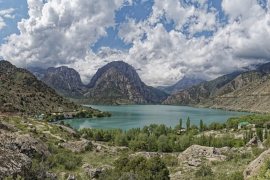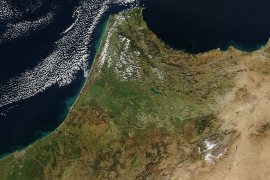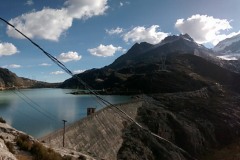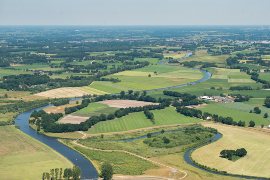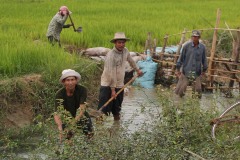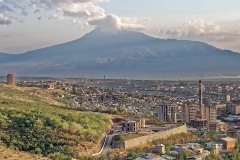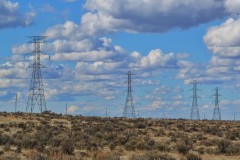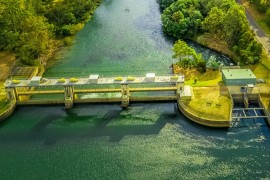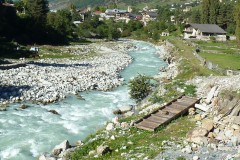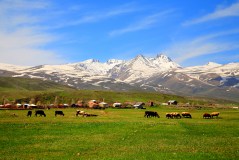Concepto
El cambio climático tendrá un impacto en los recursos hídricos. Los recursos hídricos y las demandas de agua cambiarán en términos de resolución temporal y espacial. Está claro que se necesita una evaluación sólida del cambio climático y su impacto y posibles estrategias de adaptación. Tal análisis es necesario para los sistemas existentes, así como planificar inversiones.
Originalmente se usó el nombre de Evaluación de Vulnerabilidad y Riesgo Climático (CRVA). Sin embargo, dado que la vulnerabilidad es parte del riesgo, es más común usar el término Evaluación de Riesgo Climático (CRA). No existe una metodología de CRA estandarizada ya que las CRA aún son relativamente nuevas y, además, siempre son específicas de acuerdo al proyecto. Un desarrollo más reciente es hacer una distinción entre los enfoques de evaluación de impacto impulsados por escenarios climáticos, a menudo denominados enfoques “de arriba hacia abajo” y orientados a la vulnerabilidad llamados “de abajo hacia arriba”. FutureWater es un jugador importante en el desarrollo y análisis de las fortalezas y debilidades de ambos métodos y oportunidades para fusionar los dos. FutureWater también se encuentra muy activo en el desarrollo y la aplicación de un enfoque CRA más cuantitativo en combinación con el marco clásico de riesgo y exposición.
Aplicaciones FutureWater
FutureWater se ha mantenido activo realizando Evaluaciones de Riesgo Climático (CRA) para posibles proyectos de inversión. Al mismo tiempo, FutureWater participa activamente en el desarrollo y refinamiento de los enfoques de CRA en colaboración con inversionistas de alta talla como el Banco Mundial y el Banco Asiático de Desarrollo.
Proyectos relacionados
-
Climate Risk Assessment for the Rogun Dam in Tajikistan
The Rogun HPP is a large project (3,780MW) under construction located on the Vakhsh River in Tajikistan. It will supply firm energy during the winter months when demand for electricity is the highest in Tajikistan and will allow for exports of clean electricity to the Central Asia (CA) region and...
-
Climate Risk and Adaptation Assessment for the Electricity Distribution Infrastructure in Pakistan
The project aims to strengthen the existing power transmission and distribution (T&D) system in Pakistan by rehabilitating infrastructure as the country is currently struggling with deteriorating and climate-vulnerable grid infrastructure. As part of the ‘Power Distribution Strengthening Project’, ADB is assisting the government of Pakistan in rehabilitating and modernizing the...
-
Climate Strategy Central and West Asia
The regional knowledge and support technical assistance project "Delivering a Climate Change Strategy for Central and West Asia" supports the delivery of a Climate Change Strategy and an Action Plan for Central and West Asia to strengthen integration of climate change considerations in Asian Development Banks (ADB) financed interventions in...
-
Climate Trends and Projections for Olive Production, Andalucia, Spain
The primary goal of this research is to examine the climatic changes projected for two key regions in Andalucia, Spain, which are deemed crucial for olive production. The study analyzes trends and future projections concerning rainfall, temperature, river flows, and evapotranspiration rates, discussing their potential impacts on both the micro...
-
Climate Change Adaptation Scoping Assessment for Turkmenistan
The project aims to facilitate the identification and conceptualization of projects focused on climate adaptation, particularly enhancing resilience in Turkmenistan's water and agriculture sectors. This involves creating maps of climate-related hazards to engage with government and development partners. The mapped climate risks will serve as a foundation for discussions on...
-
Model Development and Hydrological Assessments to Inform Ecosystem-based Adaptation Solutions in Lao PDR
The GCF project “Building resilience of urban populations with ecosystem-based solutions in Lao PDR” aims to test an alternative approach to flood control in urban Laos, moving away from a traditional focus on grey infrastructure, such as dams and concrete drainage systems, and towards Ecosystem-based Adaptation (EbA). A consortium led...
-
Climate Resilient Assessment and Investment Analysis in the Limpopo Basin
The primary objective of this study is to undertake a review of the water resources development scenarios considered in the Limpopo Scoping Study (2010) and the Limpopo Monograph (2013), to produce updated future development scenarios and evaluate these in terms of social, economic, and environmental benefits, including improved climate resilience...
-
Sustainable Water Resources Management in Mongolia
In Mongolia, the continental semi-arid to arid climate of most of the territory results in low water availability, with the southern region particularly affected by a lack of perennial rivers and reliance on fossil groundwater reservoirs, where recharge is negligible. Climate change and increasing water demand are further threatening future...
-
Megasequías en Las Cuencas De Alta Montaña De Europa
Las megasequías son fenómenos raros y poco conocidos. Se definen como periodos de sequía excepcionalmente severos, carácter multianual y duración prolongada (>5 años), y que generan impactos extremos que afectan a grandes extensiones y diferentes sectores de la economía y del medio ambiente (Cook et al. (2022), Nat Rev Earth...
-
Nature-based Solutions in the Black Volta Basin: Pre-Feasibility Study
In this project, an analysis is being elaborated that will showcase the potential impact and associated costs of (Nature-based Solutions) NbS to enable effective design and implementation and will support the establishment of sustainable funding mechanisms based on leveraging local beneficiaries.
-
Developing the CAREC Water Pillar: Climate Change Assessment for Georgia
The Central Asia Regional Economic Cooperation (CAREC) Program has initiated the development of a Water Pillar, an investment mechanism aimed at enhancing water infrastructure and capacity development to generate regional benefits. Expanding from the initial scoping study conducted for the five Central Asian countries in 2021, this project now shifts...
-
Climate Risk and Adaptation Assessment for the Electricity Distribution Infrastructure in Uzbekistan
Given Uzbekistan’s accelerated economic growth despite the ongoing global challenges, the government aims to maintain the momentum by implementing structural reforms that will stimulate demand and expand the private sector. This includes enhancing the resilience of the power sector with the support of the Asian Development Bank. As part of...
-
Climate Risk and Adaptation Assessment for Hydropower Project in Nepal
Climate risk and adaptation (CRA) assessment is required for the 635 MW Dudhkoshi hydroelectric project (DKSHEP) to ensure the project addresses climate change mitigation and adaptation in accordance with ADB’s requirements. The initial Climate Risk Assessment (CRA) by FutureWater in 2021 suggested the project is likely to be affected by...
-
Climate Change Impact Modelling Tana Basin, Kenya
FutureWater held for knowledge exchange sessions with the Water Resources Authority responsible for the WEAP model of the Tana Basin. The training focused on how to extract Climate Change data, how to interpret this data, and how to set-it up within the WEAP model.
-
Climate Risk and Adaptation Assessment of the Energy Transmission System in Uzbekistan
The project aims to strengthen the existing power transmission system in Uzbekistan by expanding, rehabilitating, and constructing transmission lines and substations as the country is currently struggling with a weakening and climate-vulnerable grid infrastructure. To address this issue, ADB, in collaboration with FutureWater, is directing its efforts towards enhancing the...
-
Enhancing IWRM and Climate Resilience in Vulnerable Urban Areas of the Mekong River Basin
This project implements a set of measures that span across three key outputs: 1) Inclusive assessment of water-related climate risks completed in the priority river basins. 2) Enabling environment for gender-responsive climate risk-informed integrated water resources management developed. 3) Funding proposal for priority risk reduction measures developed To accomplish this,...
-
Tailor-made Training on Data-Driven Capacity for Ecosystem Services and Management in Iran
This tailor-made training, funded by Nuffic as part of the Mena Scholarship Programme and requested by The Center for Conservation and Development of Sustainable Ecosystems (ZIPAK) in Iran, focused on providing participants with relevant hands-on experience in tools and techniques to enhance their capacity to manage (protected) ecosystems in Iran.
-
Identificación de hotspots de degradación de tierras y riesgo climático
This projects entails a risk assessment of selected value chains in the context of progressing climate change which is expected to impact on degradation processes in dryland agriculture over the next decades. A global-scale assessment of the potential impact of climate change on land degradation is performed. Per-country estimates of...
-
Paisajes Resilientes al Cambio Climático en el Nepal occidental
Nepal, with support from The Asian Development Bank (ADB), is developing a climate change adaptation project in the Karnali and Mahakali Basins in western Nepal. The overall objective is to develop climate resilient landscape and livelihoods in those regions. FutureWater contributes by developing the initial scoping project documents to be...
-
CREATE: Cross-Border Climate Vulnerabilities and Remote Impacts of Food Systems of the EU, Turkey and Africa
Knowledge and research on cross-border climate vulnerabilities and impacts of a geographic area is still a new topic in scientific literature. Nowadays, climate risk and impact assessments of food-systems focus typically on the production within a geographic area only. Consequently, knowledge and research on the cross-border climate vulnerabilities of food-systems...
-
Climate Risk Assessment for ADB’s Sustainable Urban Development Program in India
The Indian government is developing a new program under the country’s urban flagship programs referred to as Jal Jeevan Mission – Urban. The program is being implemented by the Ministry of Housing and Urban Affairs (MOHUA) and The Asian Development Bank (ADB) is planning to provide support. FutureWater contributed by...
-
Water Risk Assessment for Private Farming in North Spain
This project aims to support a due diligence processs by reviewing and auditing water-related factors of risk for orchard fruit farming in including availibility and access, climate change impact, water quality, and potential conflicts and competence among water-demand users.
-
Climate Risk and Adaptation Assessment for Nepal’s Power Sector
Nepal’s power sector predominantly relies on hydropower generation. Hydropower is vulnerable to climate change and natural disasters caused by climate change. An understanding of the future impact of climate change on hydropower assets and their performance is important for the successful implementation of hydropower projects. Climate risk and adaptation (CRA)...
-
Climate and Disaster Risk Screening and Assessment Tool
The Asian Development Bank’s is building a next-generation Climate and Disaster Risk Screening and Assessment tool. This tool aims to provide scientifically credible and context-specific screening of projects for risks associated with climate and geophysical hazards at project concept stage in order to guide subsequent activities, including the design of...
-
A Practical Farmers’ Toolkit – Geodata for Climate Smart Agriculture in Egypt
The 'Farmers Toolkit' as presented in this project contains various geodata tools applicable for farmers to assist their decision-making and adopt climate smart agricultural practices. This project launches a training program on these tools, which are: Flying Sensors, irrigation advisory services (IrriWatch portal), WaPOR and Google Earthengine Apps, and Climate...
-
Renewable Energy for Climate Resilience in Bhutan
The goal of the Asian Development Bank project ‘Renewable Energy for Climate Resilience’ in Bhutan is to diversify Bhutan’s energy portfolio. The rationale for diversification is related to the expectation that climate change impacts on the cryosphere and hydrology in Bhutan will lead to less reliable flows, in particular outside...
-
Climate Risk Screening: Water Availability Indonesia
Indonesia is planning to use its water resources more extensively. Drinking water, irrigation and environmental flow requirements should be served and the baseline of how much water is available currently and under climate change should be known. FutureWater has developed a climate risk screening approach, based on a rapid assessment,...
-
Future Evapotranspiration in the Souss-Massa Basin
In this project, FutureWater used the outputs of the bias corrected "EuroCordex" RCM ensemble generated for IMWI in a previous work package. Using temperature and precipitation trends from this dataset for both past and future, an application of the Budyko methodology combined with the Modified Hargreaves approach was implemented to...
-
Metodología de Decisión Robusta aplicada a la ordenación del territorio de la cuenca del Canal de Panamá
A través de esta cooperación técnica, IDOM y FutureWater, bajo la supervisión del BID y la ACP, construirán el Plan Indicativo de Ordenamiento Territorial Ambiental (PIOTA) de la Cuenca del Canal de Panamá y definirán los instrumentos de gestión necesarios para su puesta en marcha. El PIOTA se rige como...
-
Climate Risk Assessment for Kazakhstan’ Urban Infrastructure Modernization Program
The Government of Kazakhstan is promoting the “Wastewater Treatment Plants Reconstruction and Construction Program” to improve the wastewater treatment facilities in the 53 cities across the Country. During the first phase 11 Wastewater Treatment Plant are to be financed by ADB. FutureWater has undertaken a climate risk and adaptation analysis...
-
CAREC: Developing the Water Pillar for Central Asia
For the Central Asia Regional Economic Cooperation (CAREC) Program, a scoping study was commissioned to develop a framework for the Water Pillar: an investment vehicle for water infrastructure and capacity development that generate regional benefits. The objective of the study is to develop the scope of the Water Pillar Framework...
-
Creating a Bias Corrected, Downscaled Climate Model Ensemble to Provide Future Climate Change Projections for Morocco
This project involved downloading and bias correcting Regional Climate Model (RCM) outputs from the EuroCordex ensemble. Firstly, RCM outputs were downloaded from the ESGF database and postprocessed to a standardised grid and time representation. Subsequently, bias correction was performed using a quantile mapping approach and ERA5-Land as the reference observational...
-
Climate Risk Assessment of Irrigation and Drainage Modernization Projects
The ADB supports Tajikistan in modernizing tow Irrigation and Drainage projects in the Lower Vaksh river basin in Tajikistan. A holistic feasibility study and project design for the system (38,000 ha), as well as advanced designs and bidding documents for selected works are prepared. FutureWater prepares the Climate Risk and...
-
eLearning on Hydrology and Climate Change for Hydropower Professionals
Hydropower production in Indonesia is the main renewable energy source in the country. There is a potential to double the capacity by building new hydropower plants and to optimize current plants. PLN is the main hydropower company in the country. The project aims at enhancing the capacity of its staff...
-
Flood Risk Assessment of a Water System Under a Future Climate
In 2009, the former Velt en Vecht Water Board (now part of the Vechtstromen Water Board) and in consultation with the municipalities of Emmen, Coevorden, Hardenberg and Ommen concluded an agreement in which agreements were made about the scope and interpretation of the development of storm water retention areas. This...
-
Transboundary water management between Thailand and Cambodia
Transboundary projects aid the development of effective water resource management (WRM) by helping to limit competition over resources and in creating a dialogue for the transferral of beneficial lessons between the countries. This project takes an integrated approach to support the development of a water resource management plan for a...
-
Climate Adaptive Water Resources Management in Uzbekistan
The project undertakes a long-term and knowledge-based approach to deliver climate adaptive solutions for water resources management in Uzbekistan. The purpose is to modernize outdated irrigation and drainage systems that are currently highly vulnerable to climate change and to changes in inter-state agreements on water resources sharing. For two areas,...
-
Supporting Ambitious Climate Action in Central Asia
This project aimed to support Armenia, Georgia and Uzbekistan in targeting their Nationally Determined Contribution (NDC) spending to help adapt to the impacts of Climate Change at three spatial levels: National, Provincial and Urban. This involved performing detailed assessments of past and future climate trends and assessing climate related risk...
-
Climate Risk Assessment East-West Highway Road Project, Georgia
The government of Georgia has requested the assistance of the Asian Development Bank (ADB) to improve the Shorapani–Argveta Road Section F4 of the E60 East-West Highway. The proposed section improvement requires the construction of 12 tunnels (6 double tubes), 14 bridges, 4 interchanges and several deep cuttings and high embankments...
-
Climate Risk Assessment CAREC Road Project, Tajikistan
The Obigarm–Nurobod road section of the existing M41 highway, which carries about 3000 vehicles per day, will be inundated once the Rogun HPP reservoir has filled to operating levels. The government of Tajikistan has requested the assistance of the Asian Development Bank (ADB) to construct a 72 km long road...
-
Climate Risk Assessment Energy Distribution Network Modernization Program, Uzbekistan
In consultation with ADB and the project engineers, a rapid climate change assessment for the proposed investment program has been carried out so that the findings of the assessment can be integrated in the project design. The climate assessment focuses on the following issues: (i) screening of natural hazards in...
-
Feasibility Study for the Development of a ‘Small-hydro Climate Risk Assessment Tool’
Small hydropower (1 - 20 MW) does not require a Climate Risk Assessments yet, but this will eventually happen in the future. Investors are highly interested in the profitability of these small hydropower stations, especially because of the uncertainty caused by future climate change. Current methods for Climate Risk Assessments...
-
Climate Risk Assessment North-South Corridor Road Project, Georgia
The government of Georgia has requested the assistance of the Asian Development Bank (ADB) and the European Bank for Reconstruction and Development (EBRD) to progressively improve the North–South Corridor by (i) constructing a 23-km two-lane bypass road, (ii) providing adequate safety features and improving geometric alignment and (iii) providing well-designed...
-
Glacio-hydrological assessment for hydropower, Mestiachala river, Georgia
The objective of this project was to develop a hydrological assessment for two potential hydropower plant locations in the Mestiachala basin in Georgia. The availability of observed river discharge data is limited. Hence the assessment was developed based on hydrological simulations of the basin using the SPHY model (Terink et...
-
El Marco del Árbol de Decisión: Aplicación a la Cuenca de Chancay-Lambayeque, Perú
Para lograr mayores cuotas de seguridad hídrica y garantizar el uso sostenible de los recursos hídricos, en un contexto de reducción de disponibilidades de agua y aumento de demandas, se requieren inversiones en infraestructuras a escala de cuenca. Sin embargo, la existencia de una fuerte competitividad por el agua entre...
-
Supporting Adaptation Decision Making for Climate-Resilient Investments in Asia
The Asian Development Bank (ADB) is planning to scale-up its investments in climate change adaptation in Asia and the Pacific. FutureWater is asked to support this by developing a “Good Practice Guidance” on climate-resilient infrastructure design in the water sector.
-
Evaluación del riesgo climático usando el Marco del Árbol de Decisión para dos proyectos hídricos en Kenia y Nepal
La novedosa metodología del Marco del Árbol de Decisión (DTF) del Banco Mundial se emplea para evaluar los riesgos climáticos versus otros riesgos no climáticos asociados a dos inversiones planificadas: (1) la infraestructura de protección contra inundaciones y expansión de tierras de cultivo irrigadas en el río Nzoia (Kenia); y...
-
Climate Risk Assessment: Yanji City China
Jilin Yanji Low-Carbon Climate-Resilient Urban Development in China is supported by the Asian Development Bank. In the context of this investment project FutureWater will undertake a Climate Risk Assessment (CRA). The CRA will be based on the bottom-up approach where climate models (GCMs) are not the guiding boundary conditions, but...
-
Climate Projections and Risk Assessment for eThekwini Municipality
C40 is supporting a small set of pilot cities develop and update their climate action planning (mitigation and adaptation) to ensure it meets 1.5°C Paris agreement level of ambition. The City of Durban (eThekwini Municipality) is one of the cities participating in the pilot. Climate Adapatation Services and FutureWater together...
-
Building Climate Change Resilience in Asia’s Critical Infrastructure
Critical infrastructure in South Asia and Southeast Asia needs to become more resilient to climate change. A Technical Assistance project, supported by Asian Development Bank (ADB), looks at three key sectors: transportation, transport and water. FutureWater is responsible for the assessment of the water sector which will aim to increase...
-
Climate Risk and Vulnerability Assessment of Irrigation in Kazakhstan
The government of Kazakhstan with financial support of the Asian Development Bank (ADB) is planning to upgrade and rehabilitate its irrigation sector. A detailed Climate Risk and Vulnerability Assessment (CRVA) has been undertaken by a consortium led by FutureWater in 2017. The team collected all available data on the project...
-
Climate Resilient Water Supply System for Uzbekistan
Uzbekistan is upgrading and further developing its domestic water supply system in the western part of the country (Republic of Karakalpakstan). Tthe water supply system must be full climate proof in design and operations. The Green Climate Fund (through the Asian Development Bank) will be asked to finance the climate...
-
Review Climate Change Hindu-Kush-Himalaya
FutureWater provided a comprehensive review study on climate change and the impacts on cryosphere, hydrological regimes and glacier lakes in the Indus, Ganges, and Brahmaputra river basins. This review study was done in the context of future hydropower development in the region.
-
Central Asia Regional Risk Assessment for Water Related Energy Sector Impacts
The objective of this study was to support the “Central Asia Regional Energy Sector Vulnerability Study” led by Industrial Economics (IEc) and funded by the World Bank, by carrying out an expanded risk assessment for water availability and water related energy sector impacts in Central Asia. The work built on...
-
Climate change indicators for Mekong River Commission
With this study, the Climate Change Adaptation Initiative (CCAI) of the Mekong River Commission (MRC) offers a review of existing monitoring systems and indicators of climate change to improve the understanding of riparian governments, relevant line agencies and others on the status and impacts of climate change. The report should...
-
Addressing Climate Vulnerability of Africa’s Infrastructure
Climate change is expected to have important implications of the cost, design standards and location of Africa's infrastructure projects. Since what climate will actually occur will remain largely uncertain in the foreseeable future, the challenge is to develop decision making frameworks capable of leading to investment decisions that are “desirable”...
-
Mainstream Climate Change Adaptation and Mitigation Into Agriculture in the Southern Caucasus
This study contributes to the agriculture sector climate change impact assessment and adaptation and mitigation strategy identification and evaluation. The study encompasses the three countries of the Southern Caucasus region: Armenia, Azerbaijan, and Georgia. The project also includes components for capacity building among in-country staff, and support of the World...
-
Adaptation to Climate Change for Agriculture in The Gambia
Methodology Development of adaptation benefit-cost framework: The framework was developed in a manner to make it possible to isolate development- and climate-related benefits and costs of individual projects and to assess the sensitivity of adaptation benefits and costs to the uncertainty inherent in regional climate change scenarios. Development of analytical tools and procedures: The project...

